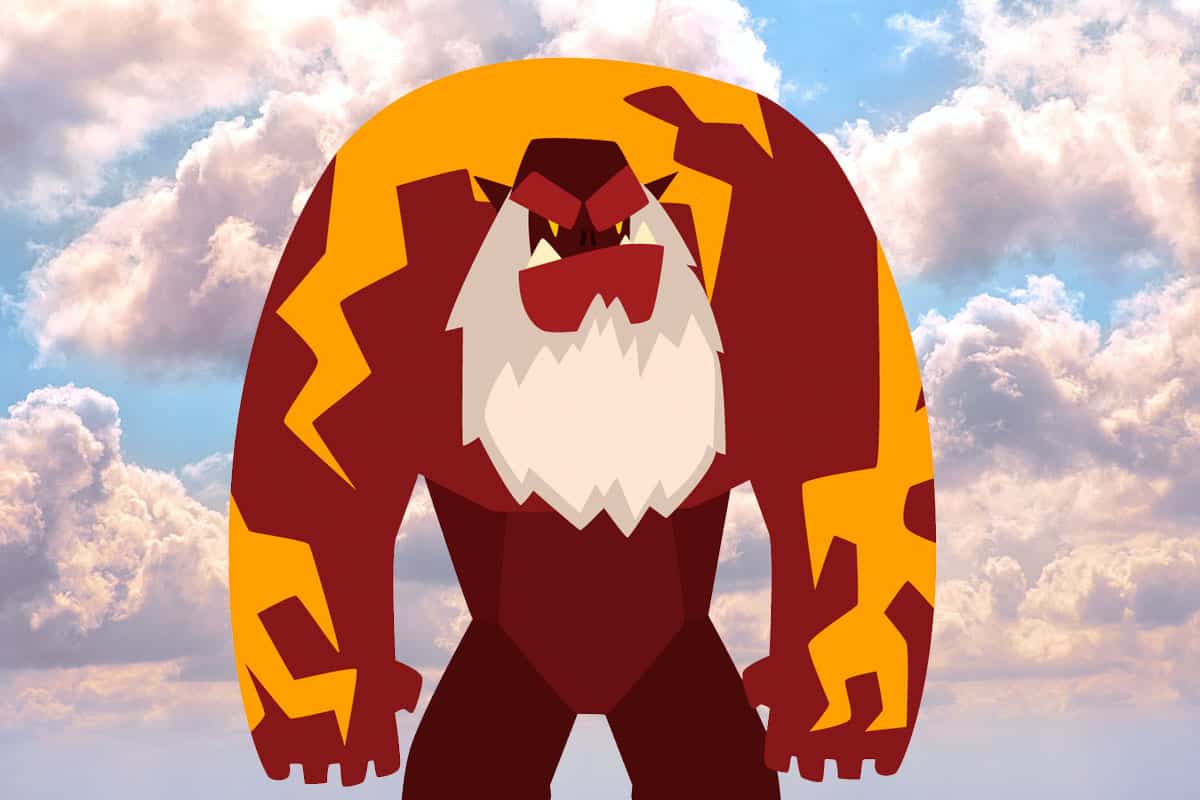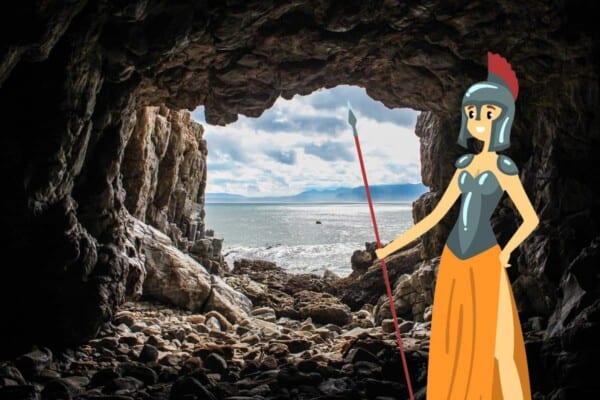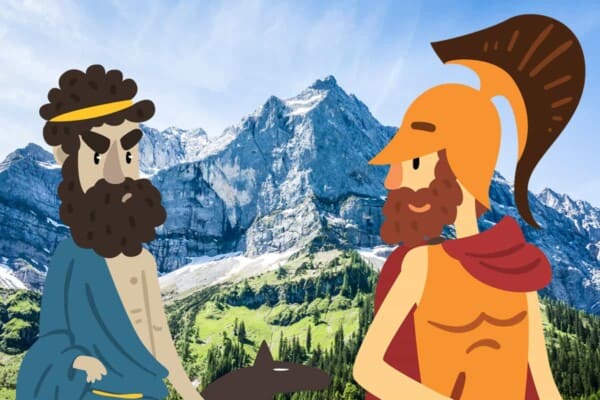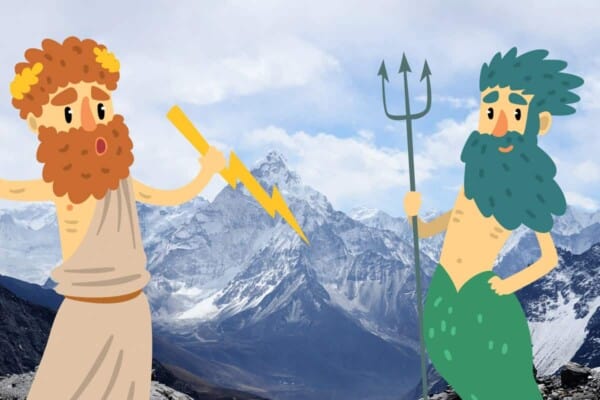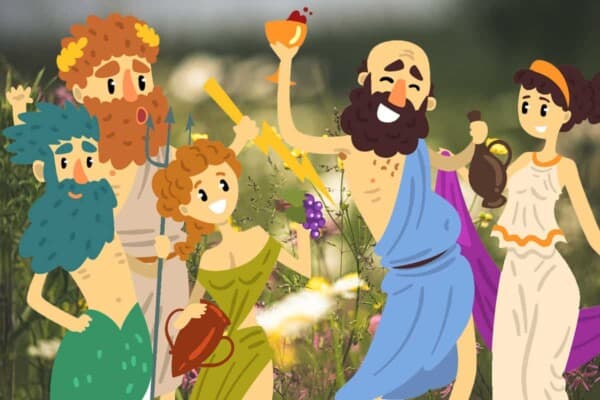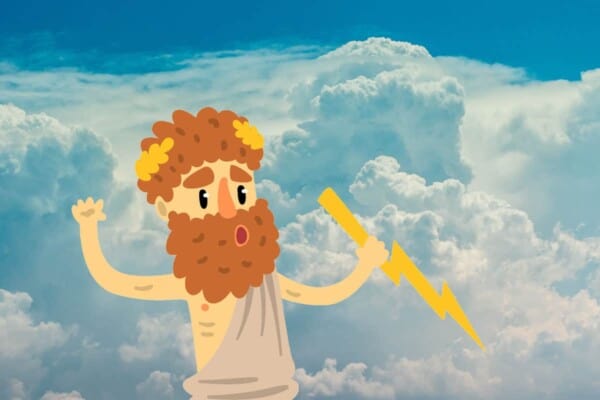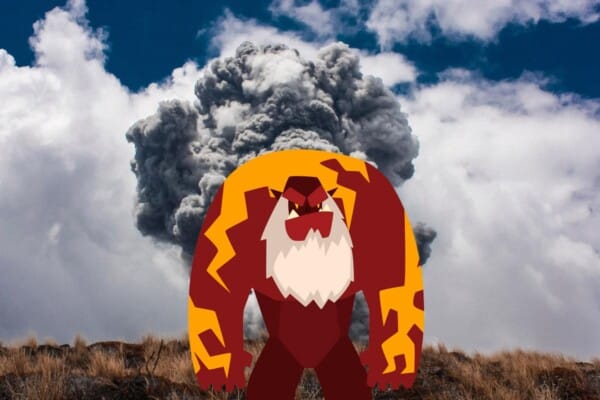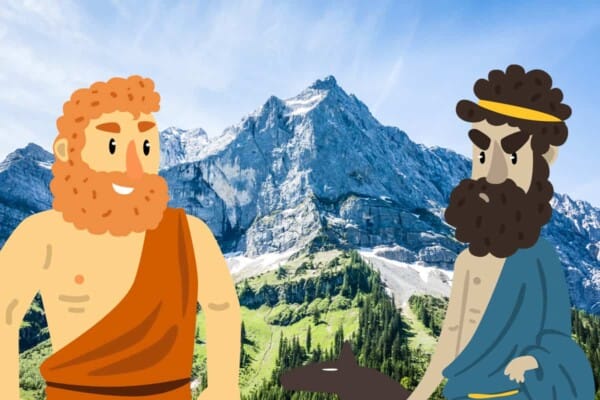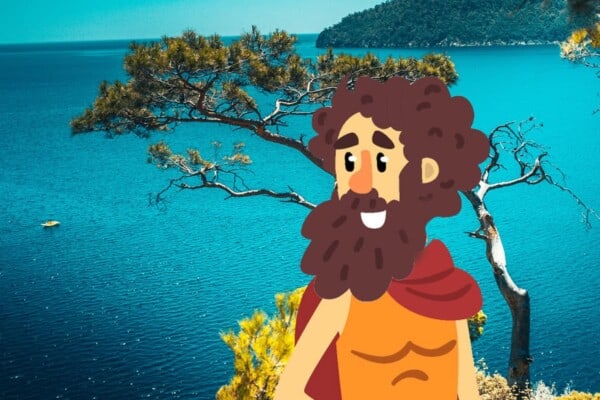Cronus and Uranus both took a turn serving as the king of the Titans, the terrifying giants that ruled before the Olympians.
But how did this father and son compare?
Uranus loved his wife but hated his children – a trait which he somewhat ironically passed onto his youngest Titan son, Cronus. However, while Uranus simply tried to dismiss the children, he did not want by locking them out of sight and out of his life, Cronus took things a step further by actively swallowing his own sons and daughters. While Cronus ruled as a decent enough king, Uranus was not quite so close to human. Cronus ruled, but Uranus simply was. However, it wasn’t until the third generation – Zeus and the Olympians – that the gods took on more human traits.
What’s the difference between Cronus and Uranus?
Family
Cronus
Cronus was Uranus’s son by Gaia. His wife, Rhea, was one of his sisters. His other siblings included Titans such as Themis, Oceanus, and Tethys, the hundred-handed Hecatoncheires Cottus, Briarus, and Gyges, and the Cyclopes Arges, Brontes, and Steropes. Aphrodite was his half-sister, and he was also brother to the Erinyes (Furies), Meliae (ash-nymphs), and several giants.
With Rhea, Cronus fathered Zeus, Hades, Poseidon, Demeter, Hera, and Hestia. Rhea and Cronus were the grandparents of hundreds of gods and mortals, including Athena, Hermes, Artemis, Hercules, Perseus, and Persephone. With the Oceanid Philyra, Cronus was also father to Chiron, the centaur.
Uranus
Uranus’s wife Gaia was usually also his mother, who produced him with no father. In some versions, his mother is Nyx. In others, she is Hemera, who bore him with Aether. Uranus’s children are Cronus and his siblings, all of whom except Aphrodite were the children of Gaia. Aphrodite was born from his shorn genitals which fell into the sea.
As well as Cronus’s children, Uranus was grandfather to the Oceanids and Potamoi through Oceanus; Helios, Eos, and Selene through Hyperion, Leto and Asteria through Coeus, Atlas, Menoetius, Prometheus, and Epimetheus through Iapetus, and Astraeus, Pallas, and Perses through Crius.
Major Myths and Roles
Cronus
Cronus was the youngest of the twelve Titans. He was power-hungry and when his mother was at odds with his father, he was the only one willing to rise up against Uranus. He overcame his father (as described below) and took his place as king of the Titans. Though his mother had plotted with him to save her children the Cyclopes and the Hecatoncheires, Cronus locked them all up again after his victory with a dragon as their guard.
His reign was a golden age, where immorality simply did not exist – until it came time for him to start to have children, when Cronus became ferocious.
Cronus’s sister and wife, Rhea, was a much gentler soul. Cronus was afraid that any child he fathered would rise up against him as he once did his own father. As a result, each time Rhea bore him a child, Cronus swallowed it alive. When Rhea couldn’t stand it anymore, she hid their youngest son, Zeus. She fed Cronus a rock in a blanket instead.
Gaia conspired to help Rhea keep Zeus safe. When he was grown, Gaia (or Zeus’s first wife, Metis, daughter of Oceanus) gave Zeus an emetic to use on his father. He did, and Cronus vomited up first the stone then in reverse order his grown children. Zeus freed the Cyclopes and the Hecatoncheires, and he led them and his newly-returned siblings in a grand battle against Cronus, known as the Titanomachy.
After ten years, the Olympians achieved victory. The Titans, including Cronus, were locked away for good and the six siblings divided power over the heavens, earth, and underworld amongst them. In some versions, Zeus later granted freedom to all of the Titans, in some others all but Cronus, and in others still they all remain imprisoned below earth.
Uranus
Uranus was the primordial personification of the sky, born from his wife and mother Gaia, the personification of the earth with no father. His children were the Titans and he is a grandfather and great-grandfather on both sides to several gods.
Many of Uranus’s children and grandchildren were also very closely related to the sky and the heavens. The Olympian sun and moon god and goddess, Apollo and Artemis, were his great-grandchildren both through their mother (his granddaughter Leto) and their father (his grandson Zeus). Their predecessors, Selene and Helios, were the children of his son Hyperion and daughter Theia. Coeus, the father of Leto, was the embodiment of the celestial axis.
Gaia and Uranus had twelve children who were named Titans, and their other children were giants and cyclopes. Uranus locked the latter deep in the bowels of the earth, causing pain to Gaia, who plotted with their youngest Titan son Cronus against him.
Cronus attacked Uranus with a scythe given to him by Gaia. He sheared his genitals from his body where they fell into the sea (personified as the goddess Thalassa). The goddess Aphrodite later rose from the sea foam.
All of the blood spilled from Uranus landed on the ground (which was, of course, Gaia), and produced more of their children including the Furies.
Uranus wasn’t usually anthropomorphized outside of the genital myth. He was a dome that covered the earth and was later held up by his own son, Atlas. After Cronus took over as king of the Titans, the sky stopped covering earth at night and instead stayed in place. This meant that Uranus and Gaia no longer courted each night and no longer produced children.
Uranus’s Greek name, Ουρανός, is still used as the word for the sky and the heavens in Modern Greek.
Final Thoughts
Cronus and Uranus were the first warring father and son, and like many warring families, their major differences came from their similarities.
Both were so distracted by their fear of being overthrown that they mistreated their own children and families, and both were ultimately defeated by the machinations of their wives. As rulers, neither was particularly cruel – but each was defeated by their own children to bring a new age.

